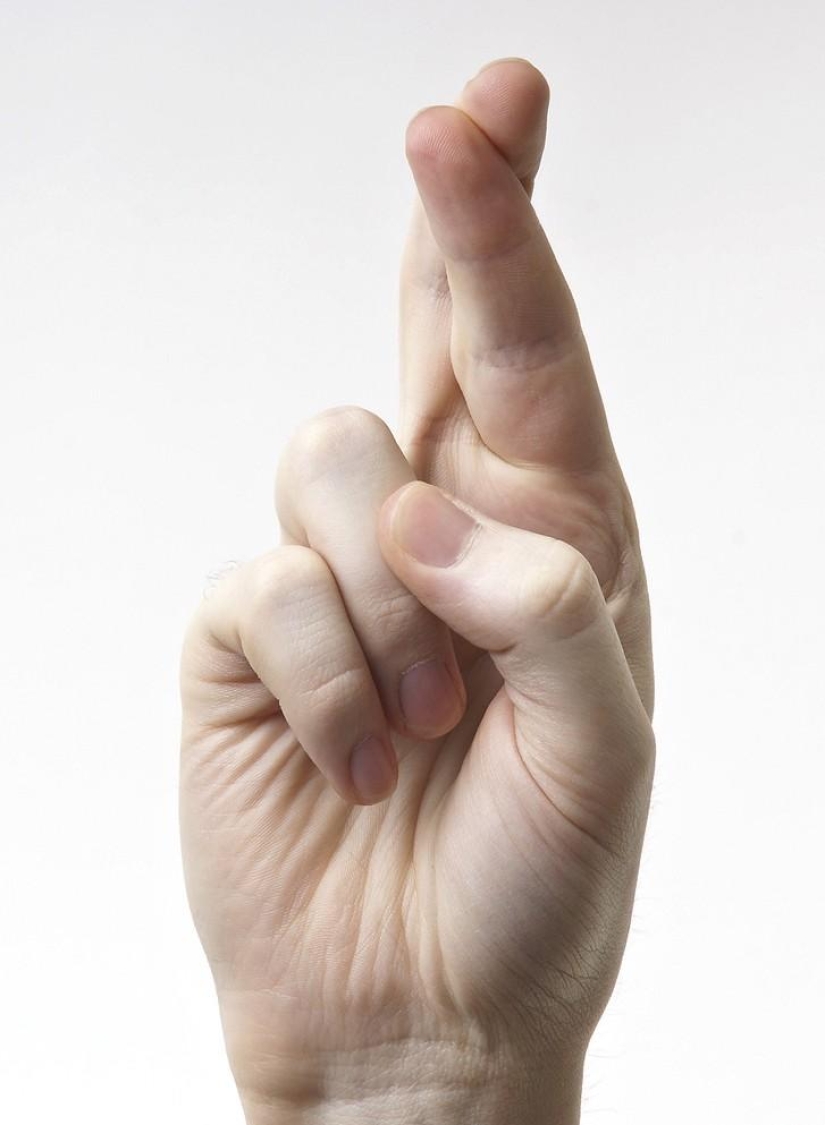10 signs that your interlocutor is lying
Categories: Life hacks
By Pictolic https://pictolic.com/article/10-signs-that-your-interlocutor-is-lying.htmlAs the hero of one popular TV series said, "everyone lies", and in this he was absolutely right. Bankers and beggars, parents and children, criminals and policemen lie, and most of all, of course, officials lie — we can say that this is an integral part of their work.
Some people deceive skillfully, others only clumsily try to hide the truth, but one way or another — everyone lies. In some cases, the truth is much more bizarre than a simple, but false version of events, so before you bring the alleged liar to the surface, it is better to make sure that he is really leading you by the nose. You will find some characteristic features of the behavior of liars in this collection.


1. Look at the floor or directly into the eyes.
If a person is lying, as a rule, he avoids looking into the eyes, so as not to give himself away. However, some liars, on the contrary, try to meet the eyes of the interlocutor as often as possible. A direct look "eye to eye" always gives the narrative plausibility, which is successfully used by many sophisticated and experienced deceivers. If during a conversation you can not catch the look of the interlocutor in any way, and then he himself begins to look intently and persistently into the eyes, you should not believe the words of this hypocrite.

2. A lengthy speech with long phrases.
Liars tend to avoid direct short phrases — the longer the monologues, the slower the conversation goes, and the liar has more time to think through further phrases.
Very typical questions for cheaters like " Where did you get this information?" they are also used to make the interlocutor start explaining, giving the liar the opportunity to develop other steps for disinformation.

3. Poses and gestures.
Body language is much more truthful than speech — the one who is able to masterfully mislead the interlocutor, can not always control the smallest manifestations of his uncertainty.
If a person speaks very convincingly, but at the same time fidgets in his chair, turns away from the listener, constantly crosses his arms on his chest or touches his face, it is better to double-check the information received from him.
4. Additional details.
Some deceivers like to mention various details in a conversation — in their opinion, thanks to a lot of details, false stories become more plausible.
The interlocutors do not always consider the story with a famously twisted plot and an abundance of" lyrical digressions " to be true, so such a technique often only reduces the credibility of the narrator, but this does not stop liars.

5. "The best defense is attack".
If, when talking to a liar, you dared to doubt his information, be prepared for a counterattack — most likely, the hypocrite will portray the deepest indignation at your distrust, the next few minutes will assure you that you will not find a more honest person in the whole world, and then try to turn the conversation to other topics.
As a rule, people who tell the truth do not behave like this — they do not need to avoid slippery topics in conversation, so they are much less nervous and do not try to whitewash themselves in the eyes of the interlocutor, but calmly stand on their own.

6. Inconsistencies in different versions.
Liars often decorate their stories with a large number of picturesque details, but they do not talk about the really important things. To be sure that the interlocutor is not hiding something important and significant, try to quietly record his story on a dictaphone, and then return to it in a few days and discuss some details. If at a kind of "confrontation" with himself, the interlocutor gets confused in the "testimony", forgetting what he said earlier, most likely, your suspicions of "foul play" are justified.

7. Eye movements.
When talking to a right-handed person, pay attention to how his eyes move — if after the question is asked, the narrator looks up and to the left-this indicates that he is trying to remember something, and the movement of the gaze to the right and up usually occurs if the person invents a convenient version for you on the go. Exactly the same phenomenon, only in a mirror image, is observed in left-handed people: when accessing memory, their eyes move to the right and up, and when fantasy is connected, up and to the left. If at the same time the hands duplicate the movement of the eyes, this even more clearly indicates a possible deception.
Also, liars tend to blink and rub their eyes more often during a conversation, so if you notice similar features of the interlocutor's behavior, but he does not have vision problems, he is most likely lying.

8. The smell of sweat.
Strictly speaking, if a person sweats, it is impossible to say unequivocally that he is a liar. A change in the level of sweating is one of the main signs of deception during a lie detector test, but many people tend to sweat intensely with strong excitement or stress, so the smell of sweat can only serve as indirect evidence of falsehood, but if a person not only suddenly sweats, but also blushes and even begins to stutter, either he is extremely alarmed, or he is hanging noodles on your ears.

9. Fleeting grimaces.
To expose a person in a lie, carefully monitor the change in his facial expression — at the beginning of a conversation, liars often make mistakes, allowing the true emotion to be reflected on their physiognomy: it can be a light, almost imperceptible half-smile or, on the contrary, an emphatically serious grimace. As a rule, such "mimic confessions" last only a few seconds, but they can tell a lot about the intentions of the interlocutor.
Some people subconsciously notice when a liar "removes the mask" for a moment, but they do not realize this and cannot explain what caused the sudden surge of distrust. This ability is often considered a kind of irrational "flair", but there is nothing supernatural in this — having trained on liars, everyone can become a walking lie detector.

10. Repetition is the mother of involuntary recognition.
The interlocutor told you a detailed exciting story, but there is no confidence in his words? Ask him to tell it again and at the same time clarify some of the details that he mentioned earlier. If the narrator suddenly begins to think and stumble, most likely neither the first nor the second versions of his story are trustworthy.
Keywords: Conversation | Lies | Deception | Life hacks | Useful tips | Interlocutor
Post News ArticleRecent articles

It's high time to admit that this whole hipster idea has gone too far. The concept has become so popular that even restaurants have ...

There is a perception that people only use 10% of their brain potential. But the heroes of our review, apparently, found a way to ...
Related articles

Most major companies profanity is not encouraged. It is considered that the profanity — it is a sign of disrespect for ...

There are people who all his life selflessly and work hard, but never have time to enjoy financial independence. And there are ...

Looks can be deceiving not only in humans, but some items, the real purpose of which is failing. At first glance, this fragrant ...

New Year's is a time to surprise and delight loved ones not only with gifts but also with a unique presentation of the holiday ...